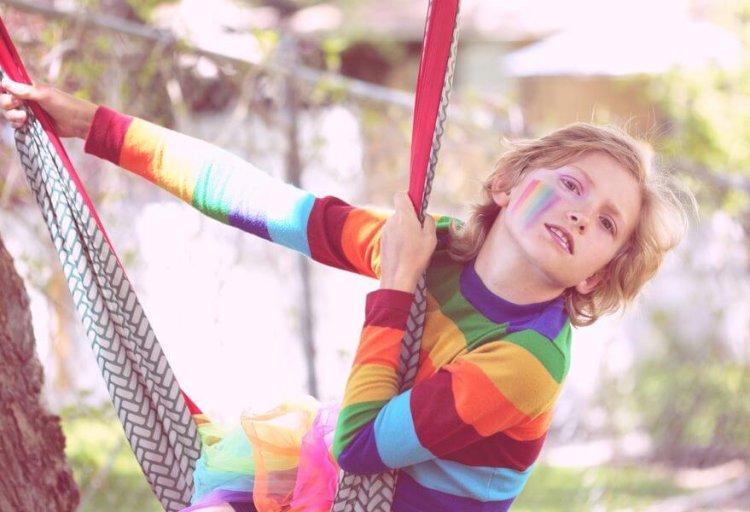We want to believe in the best for our loved ones. We’ve known how wonderful they are and how great they can be, even when they falter. We don’t want to face that there might be a problem. However, loving someone who isn’t perfect is a common thread that unites all enablers, including me.
Hi, my name is Jennifer, and I’m an enabler.
In my case, I enabled my husband, who had a problem with alcohol. In most cases, enablers like me deal with similar issues — they have a loved one who has an addiction to drugs or alcohol that they refuse to fight. Of course, those aren’t the only types of addiction a person might have. Everything from online pornography to video games to shopping to gambling can turn into an obsession, one that gets in the way of a person’s day-to-day life and relationships.
Addictions or abuses of any kind can also prevent someone from fulfilling their responsibilities. Perhaps a person can’t hold down a job, pay rent or pass their classes. They become enabled when someone in their life continues to help them or make excuses for their behavior. It sounds harsh, but I know from firsthand experience that this is just what an enabler does.
Facing the Facts
My husband had a drinking problem that grew until it got out of control. I tried to sweep it under the rug, and I made excuses for him. I told myself that he’d grow out of it, or that everyone else at the party got as drunk as he did. I tried to brush off what he had done when he had too much to drink. Little did I know, but this was one classic sign that I was enabling him.
Of course, his condition also caused me an insane amount of anxiety, and that’s another defining characteristic of an enabler. I worried that my husband would drink too much and drive home. Visions of a terrible accident flashed in my head every time he took too long to reply to a text. I offered to drive him and pick him up from his favorite bars just so I could keep him safe. That’s how it all becomes so messy — in easing my mind, I continued to enable his drinking.
This type of behavior is why enablers get such a bad reputation. From the outside, it might seem like I was complicit in my husband’s drinking, but I didn’t like it at all. I secretly wondered how I could express my fears about his addiction. I didn’t want to lose him from drinking, but I didn’t want to lose him through confrontation, either.
Plenty of other enablers face similar dilemmas. For instance, a mother might be housing her son, who has a drug addiction. He spends all his money on drugs, so she pays the rent. It might seem that she should kick him out and show him the realities of life to set him straight. In her mind, though, she knows he has nowhere else to go — sheltering him helps her ensure that, in one way, he’s safe.
It’s important to point out the differences between helping someone and enabling them. When we help someone, we provide them with something they can’t do on their own. Enabling, on the other hand, means we take up responsibility for someone who refuses to do it themselves. In doing so, we reinforce the fact that they can behave poorly and get away with it.
However, I realized — and you will, too — that the enabled will never learn if you continue to help them out of their mess. In my husband’s case, I had to put my foot down. We had long dreamed of starting a family together, but I couldn’t bring kids into such an unstable environment. I told him that he couldn’t live with me anymore if he continued drinking. I told him I would leave him if he didn’t get help. I had dreams that had been left behind in favor of his drinking. It wasn’t fair to either one of us to live life this way.
Breaking the Cycle
If you’re struggling to break out of your enabler role, the first and most essential step is to forgive yourself. Your actions stem from a place of love. But your behaviors are also delaying the inevitable. By patching the hole, you’re allowing your loved one to keep up with their addiction for another day. Without an alternative ending, they will never realize they need to shape up.
Start by setting boundaries between yourself and the person who has the addiction. This step means that you can no longer take responsibility for any of their actions. No more cleaning up their messes. In my husband’s case, I vowed that I wouldn’t drive him on his nights out anymore. I wouldn’t cancel family gatherings or dates because he drank too much beforehand. It would be his turn to clean up his messes.
Next, you will have to be as supportive of a friend, family member or partner that you possibly can. Guide your loved one to the support they need and champion them through the process. Knowing that you’re still there will undoubtedly help them through the toughest parts. Ultimately, though, this change is in their hands. They have to be the ones who want to overcome their addictions. When you see them exhibiting positive behaviors, cheer them on so they know how much it means. Don’t forget that when you cut someone off from your enabling ways, you’re not acting as if you don’t love them. Instead, you’re showing how much you really do care. You want your loved one to get better and return to their happy, normal life.
The good news is losing an enabler can help them do just that. In my husband’s case, the thought of separating and living our lives apart from one another helped prove my point. He got sober all by himself. I didn’t ever stop supporting him, though — even today as he continues to live life without alcohol. We’re happier and closer than I ever could have imagined.
Sometimes, I look back and wonder why I didn’t take steps to break the enabling relationship sooner. If you’re reading this and wondering how and when to make it happen, I say there’s no time like the present. Figure out how you’re enabling your loved one and do what you can to break the cycle. You’ll both be better for it, and your relationship will be, too.





Leave a Reply